Today we live in a society, which can not imagine life without expressing views on social media. Probably it does have certain advantages. Nevertheless, many participants of active discussions have already forgotten or do not even know about the developments, which unfolded in Armenia 5, 10 or 15 years ago.
To fill the gap Mediamax presents 5/10/15 project, which introduce developments in Armenia 5, 10 and 15 years ago.
• 15 YEARS AGO: FEBRUARY 25 - MARCH 3, 2004
“Safarov will return to Baku”
On February 26 Defense Minister of Azerbaijan Safar Abiyev announced that the ministry was trying to bring senior lieutenant Ramil Safarov back to homeland.
“We are working on it. The Ministry of Defense of Azerbaijan will protect its officer,” said Abiyev, adding that “Ramil Safarov will return to Baku”.
Eight years later, on 31 August 2012, Ramil Safarov returned to Azerbaijan and was pardoned by President Ilham Aliyev. Safarov was serving a life sentence in Hungary for the brutal murder of Armenian lieutenant Gurgen Margaryan.
Armenia’s Defense Minister calls for a response
On February 26 Armenian Defense Minister, Secretary of National Security Council Serzh Sargsyan suggested that the Public Prosecutor’s Office and the National Security Service should respond in the established order to the publications about his complicity in illegal wiretapping of politicians’ telephone calls.
Serzh Sargsyan made that suggestion at the government session.
Sargsyan’s statement was prompted by the interview of deputy chairman of the opposition National Unity Party Aleksan Karapetyan, who accused Sargsyan of tapping the phone talks of opposition politicians, leader of National Unity Artashes Geghamyan in particular.
Lukashenko is grateful for support
On February 25 Belarusian President Alexander Lukashenko thanked Armenia for the support in the scope of international organizations.
At the meeting with Armenian National Assembly speaker Arthur Baghdasaryan, Lukashenko said that “such strong support was a pleasant surprise even for me, although we have a firm partnership with Armenia”.
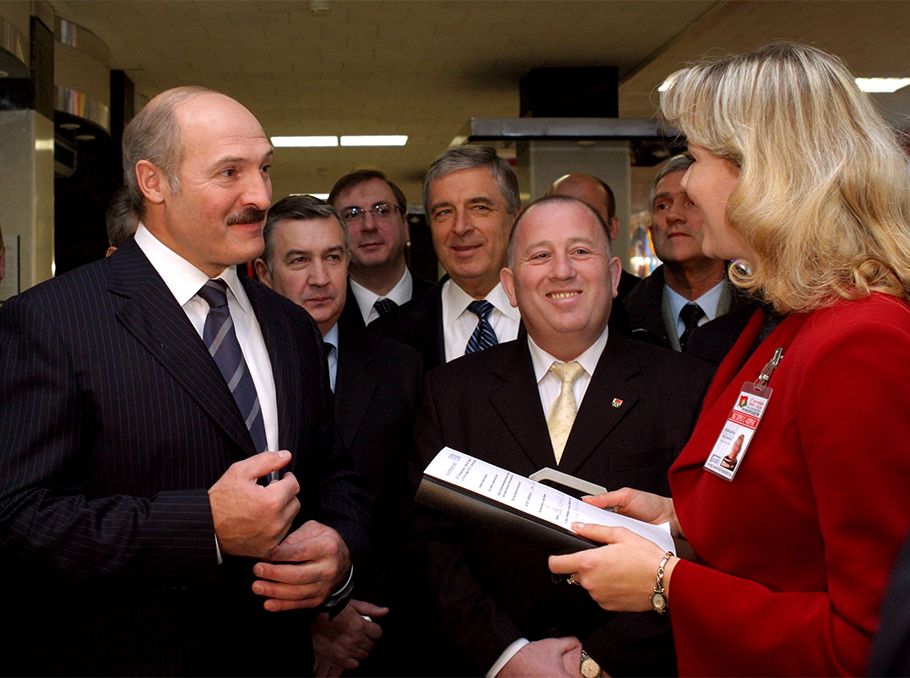 Alexander Lukashenko in 2014
Alexander Lukashenko in 2014Photo: REUTERS
“The Armenians stand out by always keeping their word and firmly adhering to the position they choose,” he stated. Lukashenko pointed out that he has “huge respect for Armenia, its people and President Robert Kocharyan, whom he considers a good friend”.
“The peace talks reached a deadlock”
On February 27 Russian co-chair of OSCE Minsk Group Yuri Merzlyakov said in the interview to RIA Novosti that “the negotiations on Nagorno-Karabakh conflict settlement practically reached a deadlock as neither Armenia nor Azerbaijan want to make concessions”.
“The situation is as follows: the sides stick to their positions, there is no movement at all,” said the Russian diplomat. According to him, the only alternative was to establish any kind of a dialogue between the sides.
“This must not be done publicly, because the sides need to discuss and define the circle of issues that they are actually ready to talk about. But there isn’t even that now. There is no agenda at all,” said the Russian mediator.
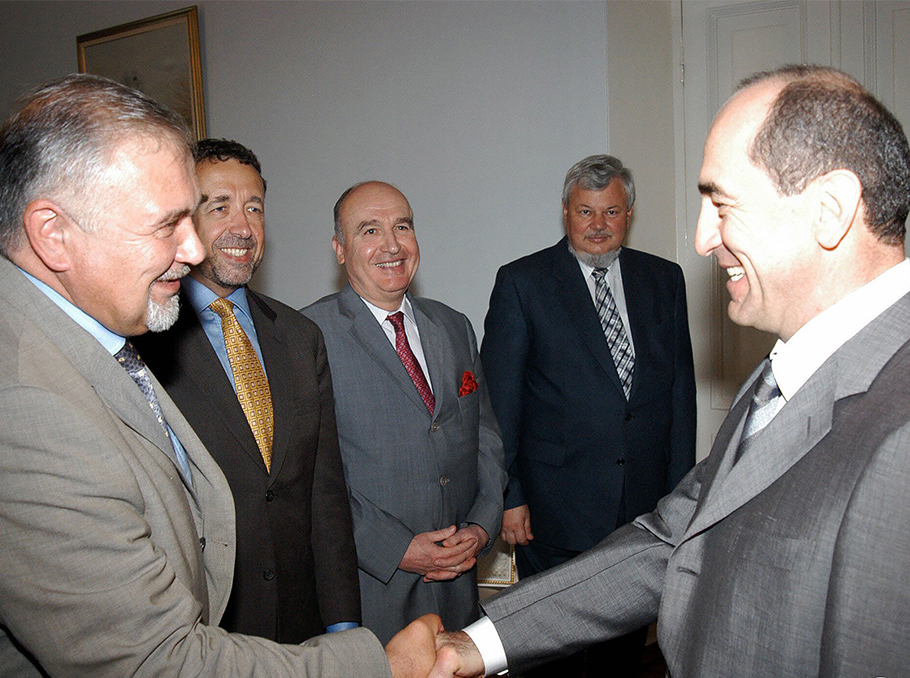 Yuri Merzlyakov and Armenian President Robert Kocharyan
Yuri Merzlyakov and Armenian President Robert Kocharyan Photo: Photolure
On March 3 President of Azerbaijan Ilham Aliyev said he disagreed with Merzlyakov’s claim about the deadlock and did not “understand the reasons for the Russian mediator’s pessimistic opinion”.
“I don’t think that there is a deadlock situation. Sometimes such statements are voiced. In some cases they contradict one another. Several statements by Russia sounded rather reassuring. This can be said also about the statements made during the last visit of the co-chairs to Baku. Today we hear new statements, but I don’t know on what grounds they are disseminated,” said Ilham Aliyev.
• 10 YEARS AGO: FEBRUARY 25 - MARCH 3, 2009
The floating rate
On March 3 the Board of the Central Bank of Armenia decided to limit the interferences in the currency market, “taking into account the aggravations in trade terms and the slowdown of growth rates in the inflow of capital to the republic”.
“This limitation will allow the exchange rate to form in accordance with the macroeconomic conditions, which will notably improve the competitiveness of Armenia and contribute to creation of new jobs,” Central Bank Chairman Artur Javadyan said at the press conference.
He noted that the decision to shift back to the policy of floating exchange rate was based on the fact that “the financial system of Armenia is stable, overcapitalized and ready to withstand the challenges of the global crisis”.
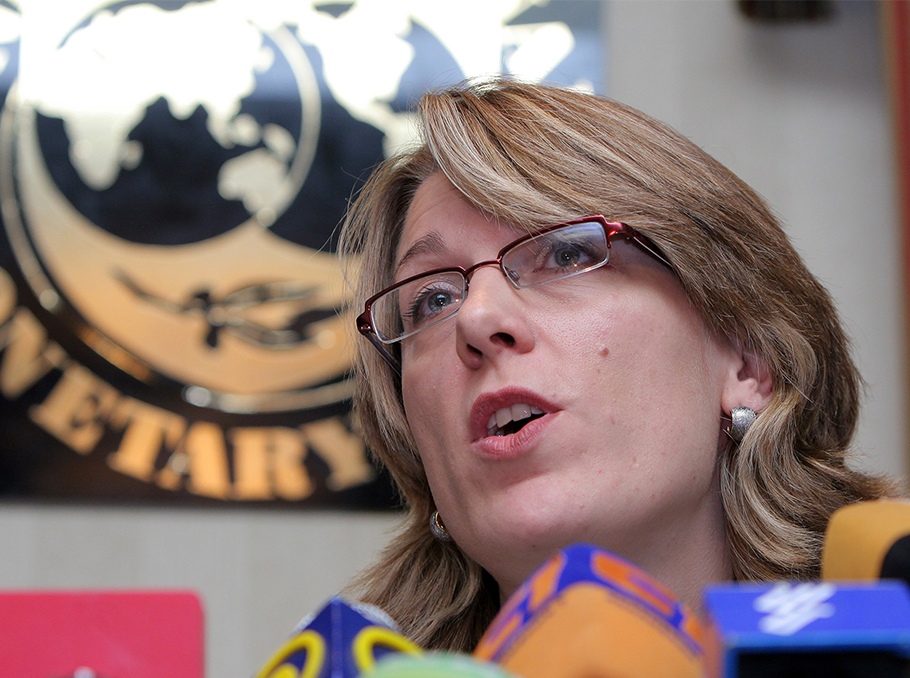 IMF Resident Representative (in 2009) in Armenia Nienke Oomes
IMF Resident Representative (in 2009) in Armenia Nienke Oomes Photo: Photolure
On the same day the World Bank issued a statement reading that “the adjustment of the exchange rate is necessary in order to strengthen Armenia’s competitiveness and mitigate the impact of the global economic crisis”.
“A flexible exchange rate regime is a key building block of the comprehensive economic policy program put in place by the Armenian authorities to cope with the impact of the global economic crisis. The adjustment of the exchange rate will help Armenian companies to compete more successfully in global and domestic markets and will pave the way for high and sustained growth,” the World Bank said in the statement.
• 5 YEARS AGO: FEBRUARY 25 - MARCH 3, 2014
Rosneft plans to invest USD 500m
Rosneft planned to carry out an investment program worth around USD 500 million in Armenia, Armenian Prime Minister Tigran Sargsyan announced after the meeting with his Russian counterpart Dmitry Medvedev in Sochi on February 24.
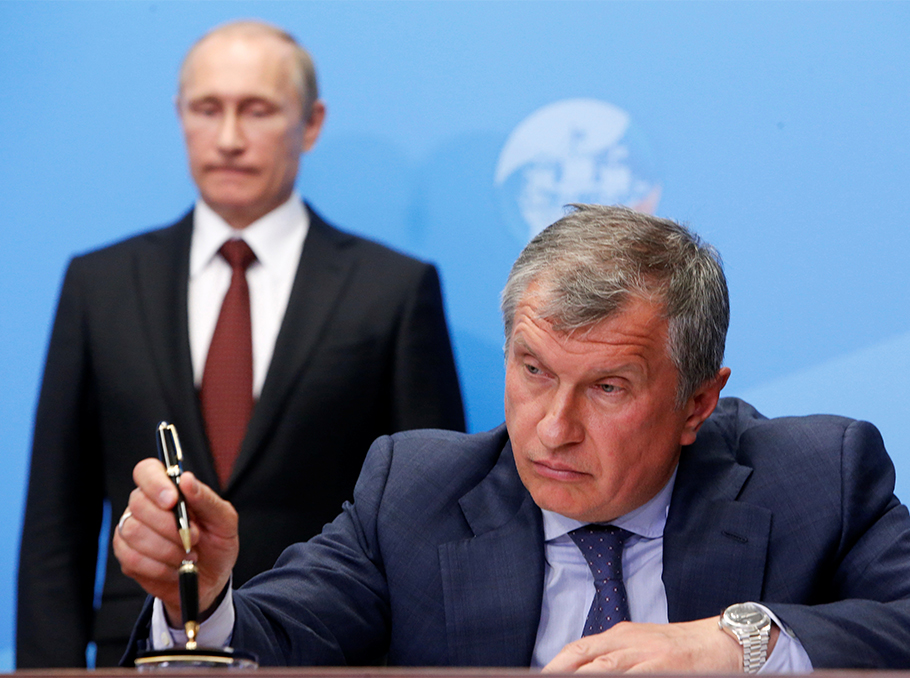 Igor Sechin and Vladimir Putin in 2014
Igor Sechin and Vladimir Putin in 2014 Photo: REUTERS
“We have listened to the report by Rosneft Chairman Igor Sechin. They are planning to invest around USD 500 in Armenia. In the near future, we will discuss what conditions we need to create for these investments to realize the project as quickly as possible. The project concerns Nairit factory, and the majority of the new factory’s staff will be comprised of former Nairit employees”, said Tigran Sargsyan.
Earlier, in December 2013, Rosneft, Pirelli Tyre Armenia and Rosneft Armenia signed a memorandum on establishing a joint venture.
The project was never implemented and Rosneft did not invest USD 500m in Armenia.
Ara Tadevosyan














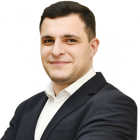

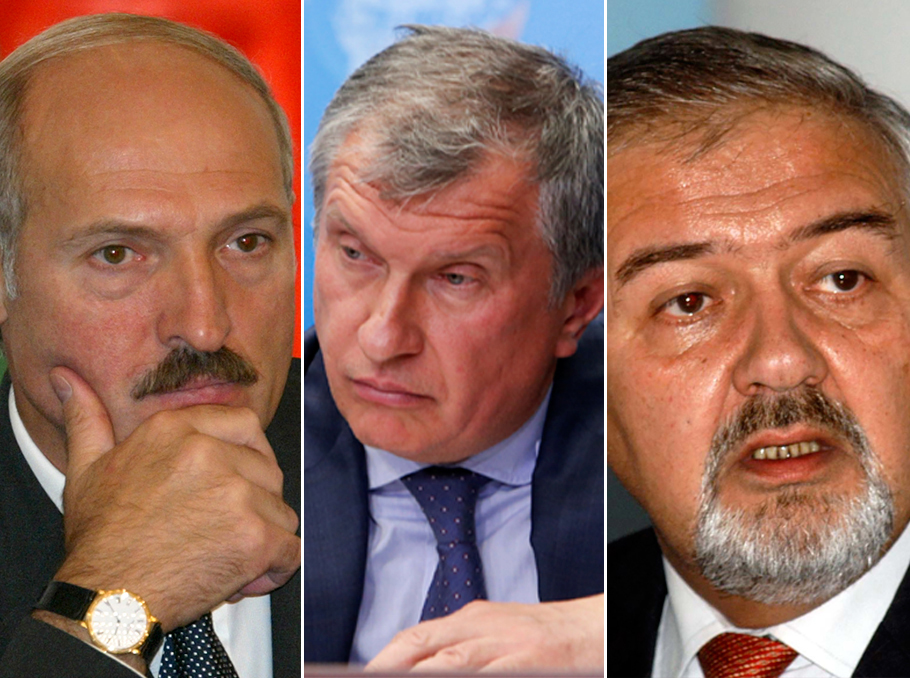

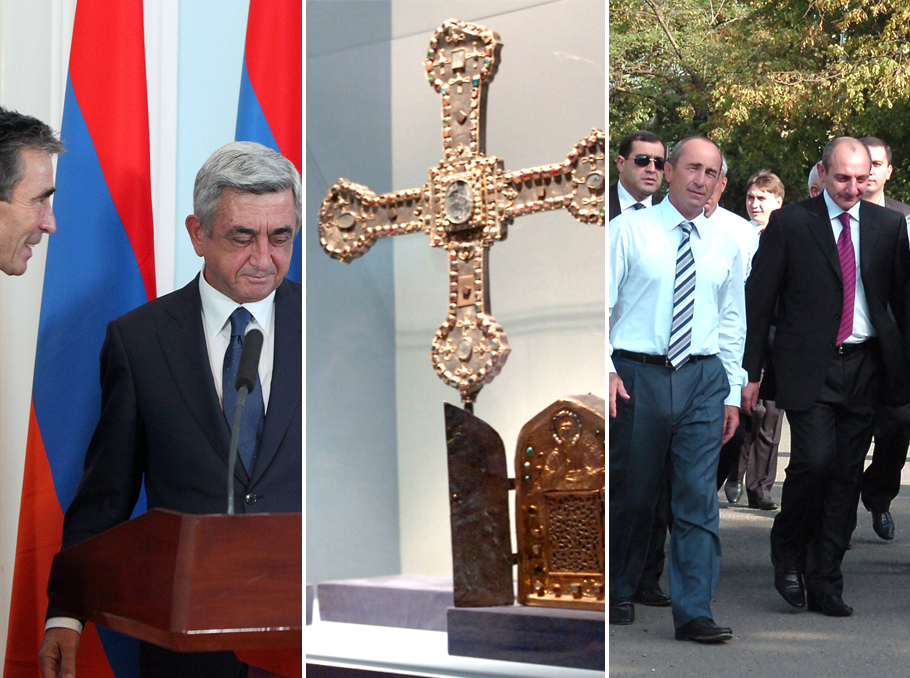
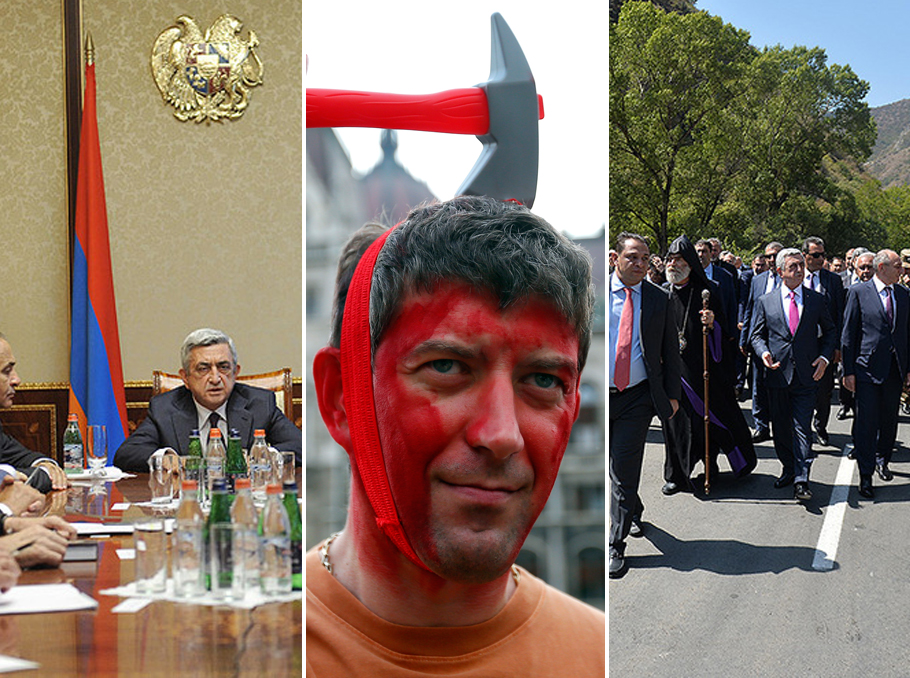
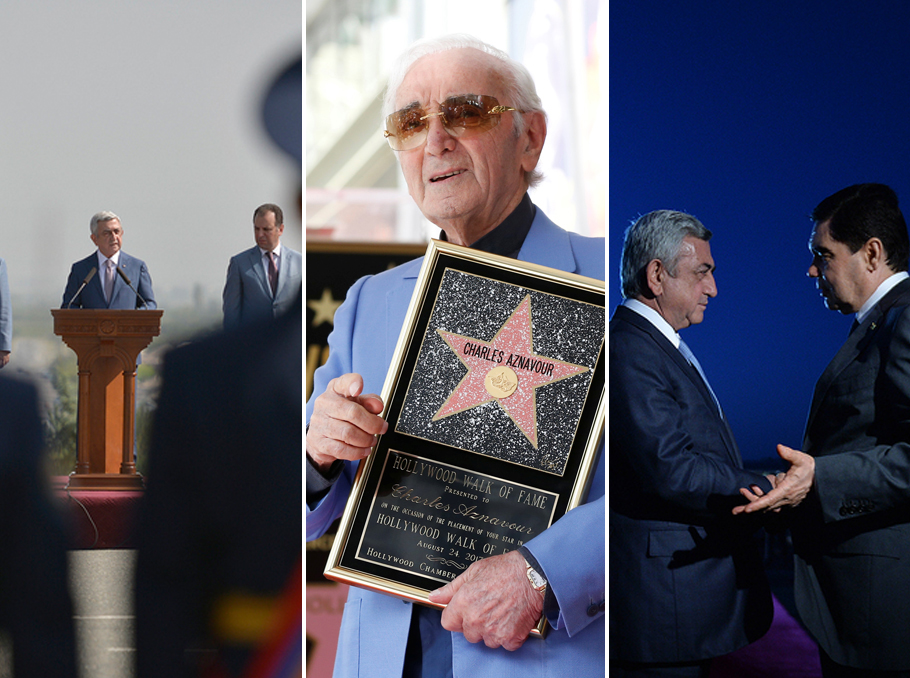
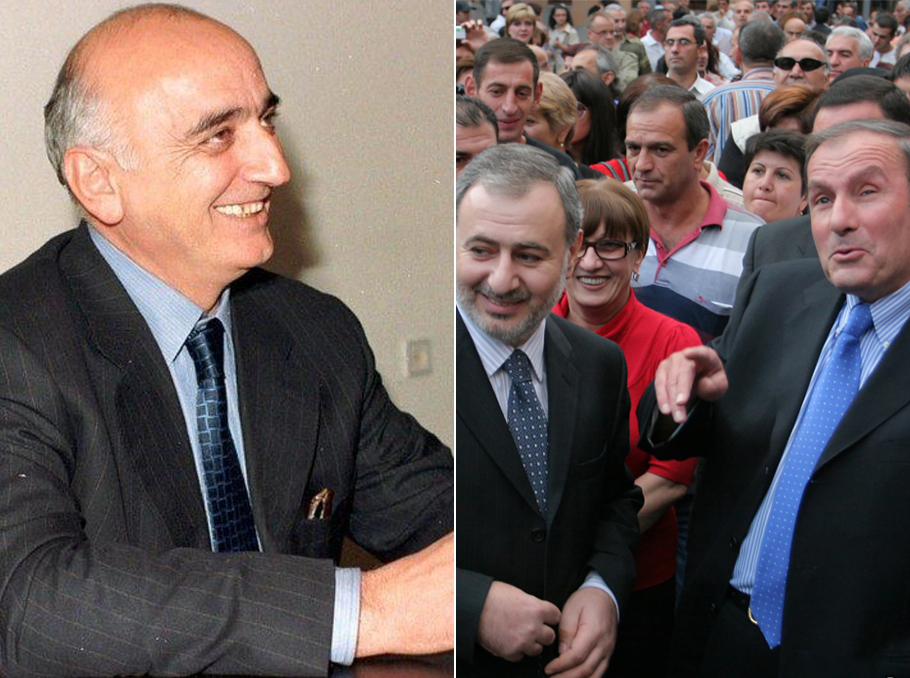
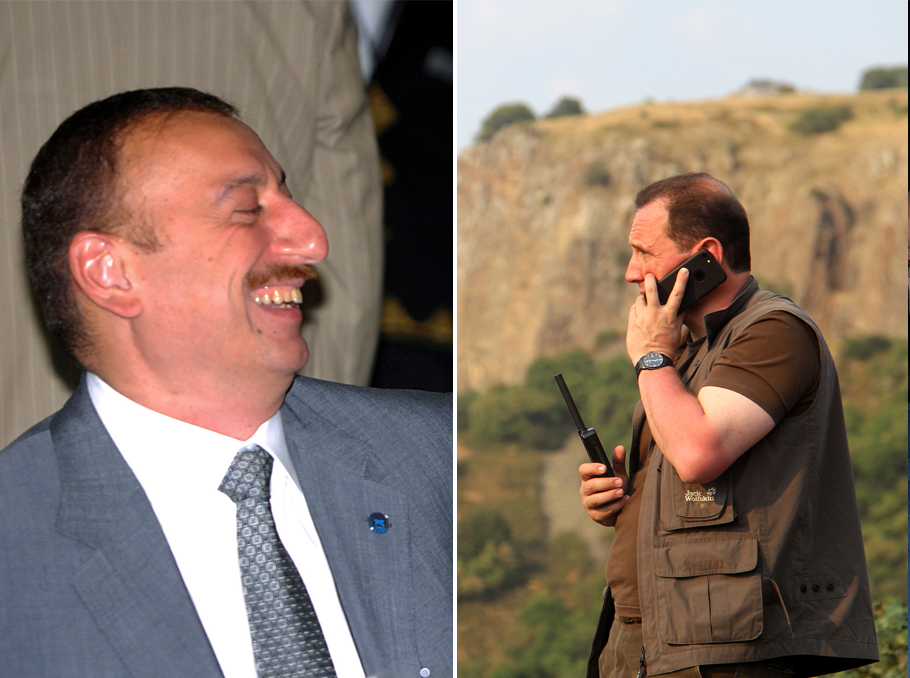





Comments
Dear visitors, You can place your opinion on the material using your Facebook account. Please, be polite and follow our simple rules: you are not allowed to make off - topic comments, place advertisements, use abusive and filthy language. The editorial staff reserves the right to moderate and delete comments in case of breach of the rules.